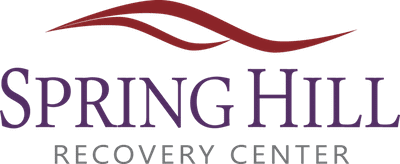Sobriety Fatigue: What It Is And How To Manage It
Sobriety fatigue is a complex state of extreme fatigue that is caused by a combination of psychological and neurological factors. Sobriety fatigue may affect your overall well-being and increase the risk of relapse, so it is crucial to know how to manage it.

Addiction to any substance can take a toll on your mental health and energy levels. Sobriety fatigue is a known symptom that affects people who quit drinking and using drugs.
To help manage sobriety fatigue and reduce the risk of relapse, experts suggest embracing a healthy lifestyle and accepting emotional support.
An inpatient drug or alcohol addiction treatment program can help reduce sobriety fatigue by providing a balanced diet, daily wellness activities, support groups, and regular therapy sessions.
What Is Sobriety Fatigue?
Sobriety fatigue, also known as recovery fatigue, is an emotional state of fatigue and discouragement that often begins as a drug and alcohol withdrawal symptom and continues with sustained sobriety.
People may experience sobriety fatigue as a result of the physical, psychological, and social challenges experienced during recovery from drug and alcohol addiction.
Due to the emotional strain of prolonged fatigue, sobriety fatigue can be a risk factor for relapse, as some people will be tempted to use drugs or alcohol to feel more like themselves.
However, it is important to note that sobriety fatigue is temporary. Addiction treatment and healthy lifestyle choices can help people in recovery feel like themselves again without the risks of substance use.
Factors That Contribute To Sobriety Fatigue
When people experience sobriety fatigue during drug or alcohol detox and the early stages of recovery, it is often the result of the physical toll of withdrawal symptoms and the constant strain of resisting cravings.
However, there are a variety of psychological and neurological factors that can trigger sobriety fatigue past the initial detoxification stage.
Psychological Factors
When a person stops using drugs or alcohol, the brain has to adapt to the absence of those influences.
This process requires significant shifts in brain chemistry that can be initially challenging to a person’s mental health. The resulting psychological factors often contribute to sobriety fatigue.
Psychological factors that contribute to sobriety fatigue may include:
To complicate matters, many people self-medicate by using drugs or drinking alcohol as a way of managing stress, negative emotions, and untreated mental illness.
When a person stops drug or alcohol use, they may struggle with handling emotions on their own due to a lack of healthy coping mechanisms, which can exacerbate sobriety fatigue.
Neurological Factors
The neurological changes the brain undergoes following detoxification cause a range of physical symptoms that contribute sobriety fatigue.
People who abuse substances like alcohol, prescription drugs, and illicit drugs often produce lower levels of important neurotransmitters like dopamine and norepinephrine.
These neurotransmitters are responsible for balancing a person’s moods and brain activity, so people in recovery often struggle with low-energy, depression, and negativity.
Low levels of these neurotransmitters are a common underlying cause for sobriety fatigue. Fortunately, the brain will adjust, but it does take time.
Triggers
Triggers are people, places, feelings, and things that remind a person of drugs or alcohol, causing cravings and tempting them to alcohol and drug use.
Resisting triggers can be emotionally and physically taxing, contributing to sobriety fatigue.
Unfortunately, the combination of an active trigger and sobriety fatigue are a high-risk combination for relapse, so many people require extended support until they feel more like themselves.
Symptoms Of Sobriety Fatigue
There are a variety of symptoms that can be experienced with sobriety fatigue.
Common symptoms of sobriety fatigue include:
- lethargy
- tiredness
- problems sleeping
- reduced cognitive function
- mood swings
- physical weakness
- irritability
- impaired decision-making
- cravings
- high stress levels
Recognizing the symptoms of sobriety fatigue early on allows you to receive the proper support and will allow you to contact an addiction specialist for help developing a treatment plan to manage your sobriety fatigue.
How Does Sobriety Fatigue Affect Recovery?
Sobriety fatigue can go well beyond causing physical symptoms; it can also affect emotional regulation, disrupt circadian rhythms, and impair decision-making.
All of these factors increase the risk of relapse, so sobriety fatigue can make recovery significantly more difficult.
People who are experiencing sobriety fatigue should seek long-term support following inpatient addiction treatment, including aftercare and mental health treatment to decrease the risk of relapse.
How Does Evidence-Based Treatment Combat Sobriety Fatigue?
Managing sobriety fatigue requires evidence-based treatments like counseling and medication management to support the person’s physical and mental health.
Receiving professional healthcare at an addiction treatment center can help address substance use and any psychological factors that contribute to sobriety fatigue.
By providing each client with medication to treat co-occurring conditions, counseling to explore healthy coping mechanisms, and treatment to identify the root causes of substance use, a rehab center can give someone the tools they need to manage sobriety fatigue.
Learn More About Addiction Treatment In Massachusetts
If you or a loved one are living with a substance use disorder and seeking treatment in Massachusetts, we can help.
Contact Spring Hill Recovery Center to learn how we can help your loved one begin their recovery journey.
- American Family Physician https://www.aafp.org/pubs/afp/issues/2004/0315/p1443.html/
- Hindawai https://doi.org/10.1155/2014/959152
- Johns Hopkins Medicine https://www.hopkinsmedicine.org/health/conditions-and-diseases/neurological-disorders/
- Medline Plus https://medlineplus.gov/ency/article/000764.htm/
- Medline Plus https://medlineplus.gov/ency/article/002149.htm/
- National Library of Medicine: Bookshelf https://www.ncbi.nlm.nih.gov/books/NBK310652/
- National Library of Medicine: PubMed https://www.ncbi.nlm.nih.gov/pmc/articles/PMC6761824/
- National Library of Medicine: PubMed https://www.ncbi.nlm.nih.gov/pmc/articles/PMC3109184/
- National Library of Medicine: PubMed https://www.ncbi.nlm.nih.gov/pmc/articles/PMC7186308/
- National Library of Medicine: PubMed https://www.ncbi.nlm.nih.gov/pmc/articles/PMC3963479/
- National Library of Medicine: PubMed https://pubmed.ncbi.nlm.nih.gov/15279762/
- National Library of Medicine: PubMed https://www.ncbi.nlm.nih.gov/pmc/articles/PMC3177010/
- National Library of Medicine: PubMed https://www.ncbi.nlm.nih.gov/pmc/articles/PMC4465180/
- Substance Abuse and Mental Health Services Administration (SAMHSA) https://store.samhsa.gov/sites/default/files/sma14-4859.pdf/
- Victoria State Government https://www.betterhealth.vic.gov.au/health/conditionsandtreatments/fatigue-fighting-tips/
- Wiley Online Library https://doi.org/10.1002/jcad.12296/

